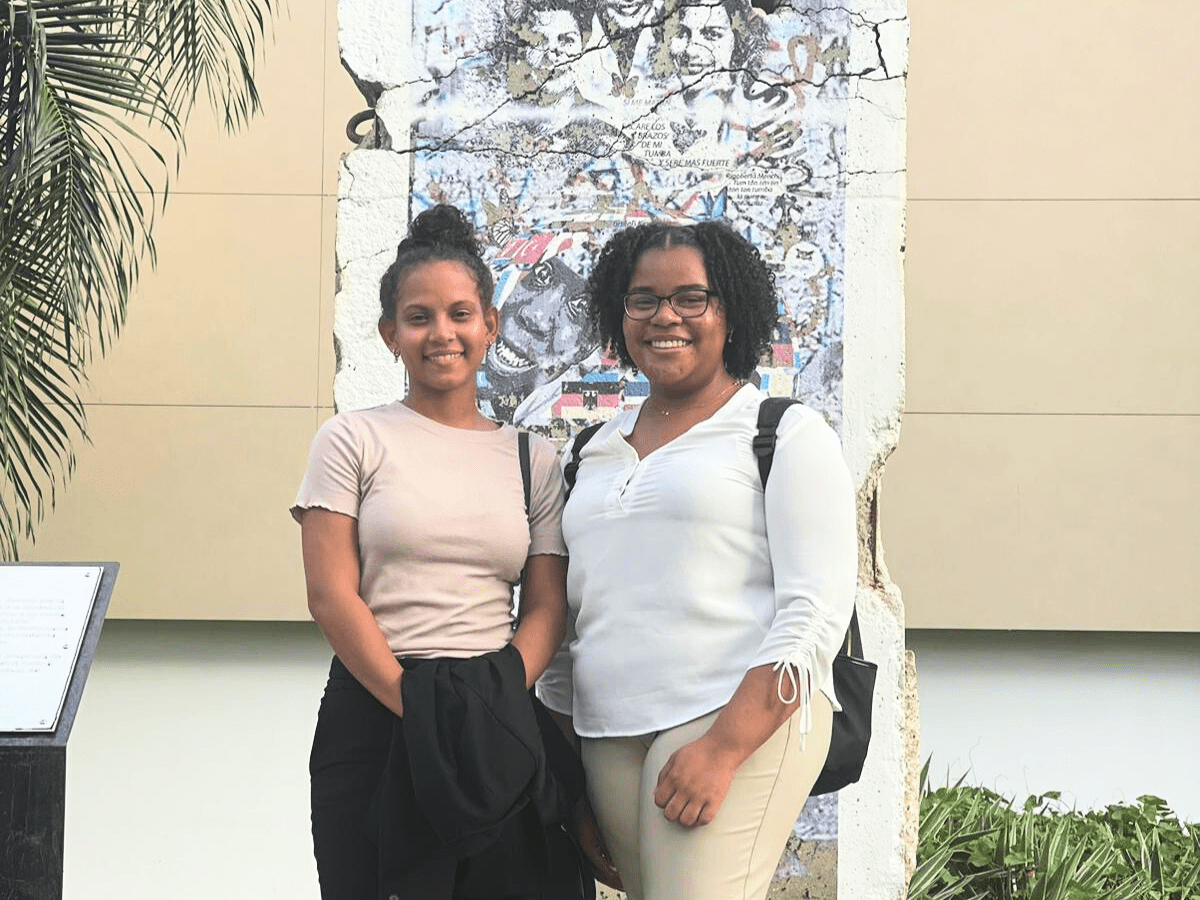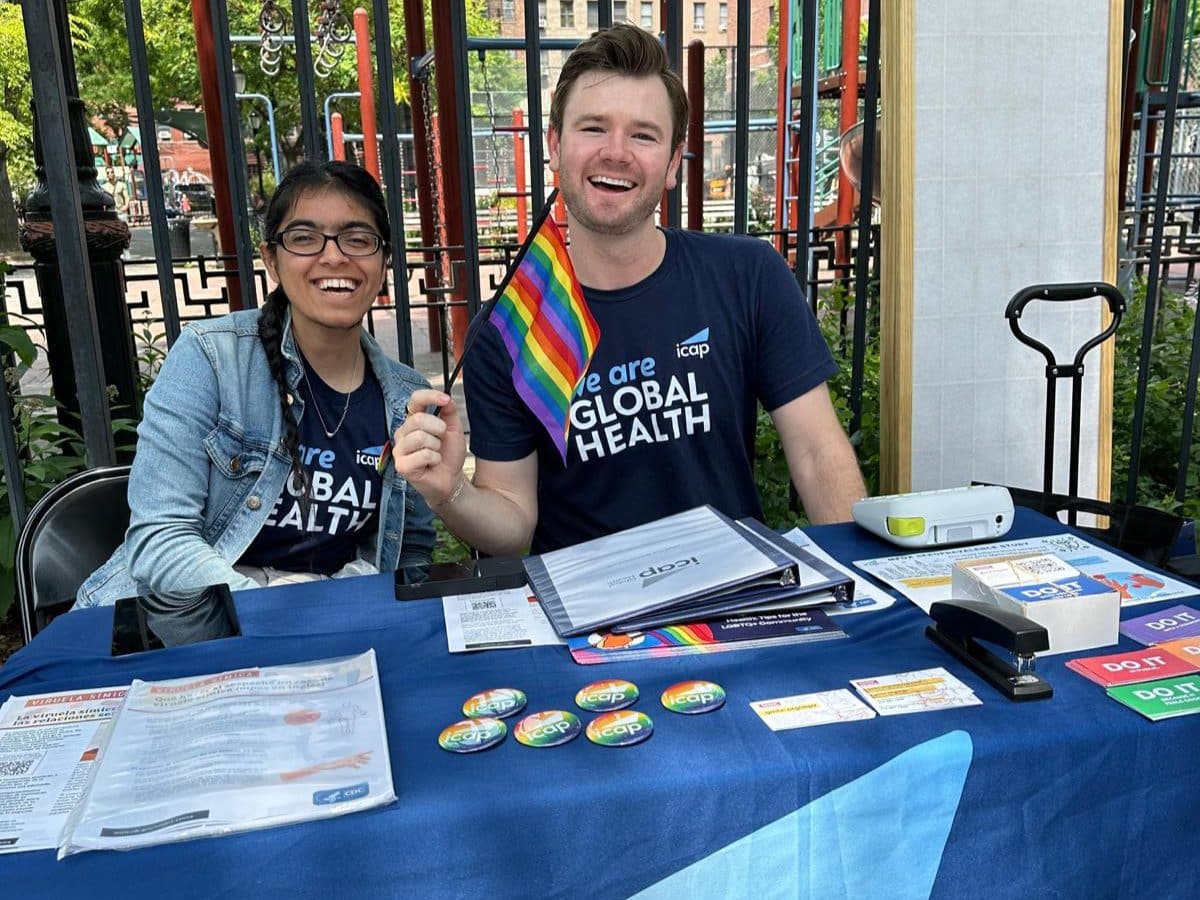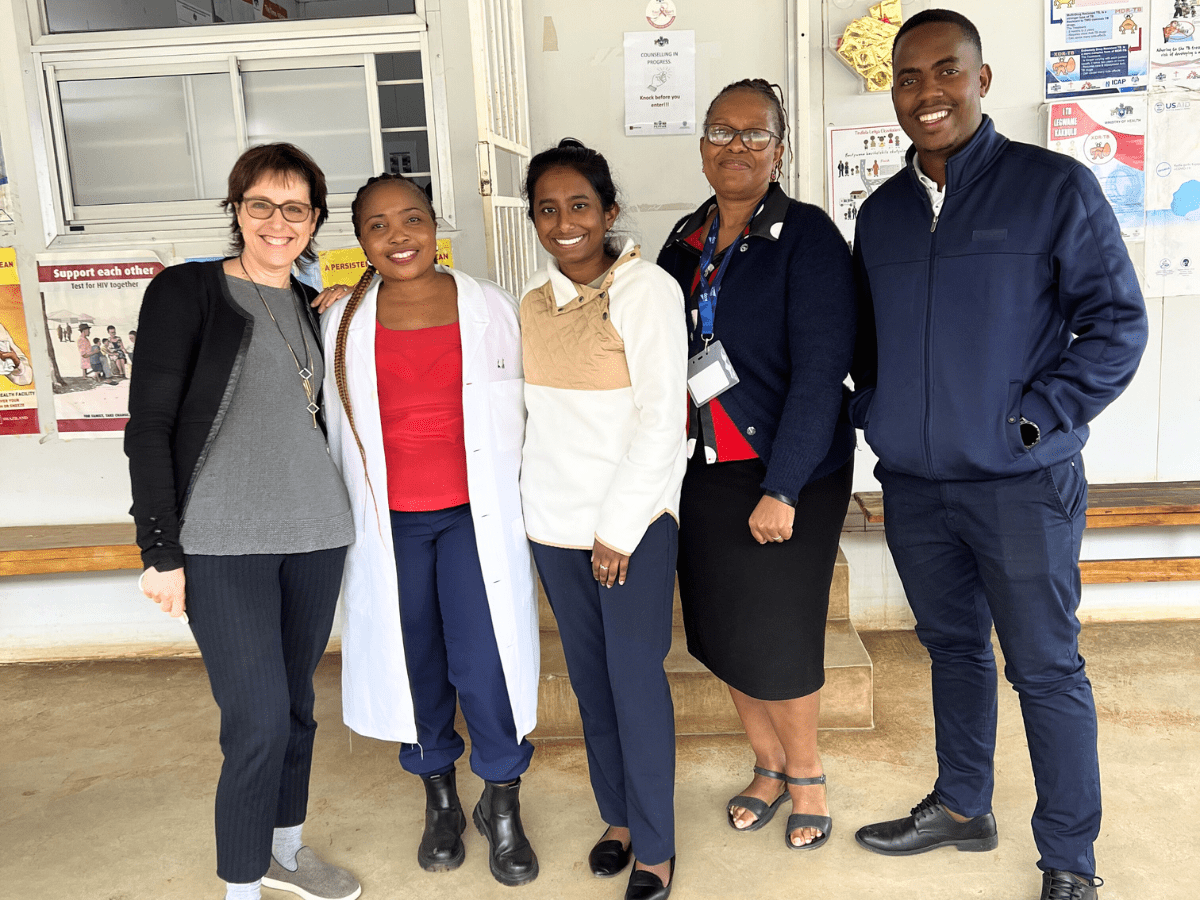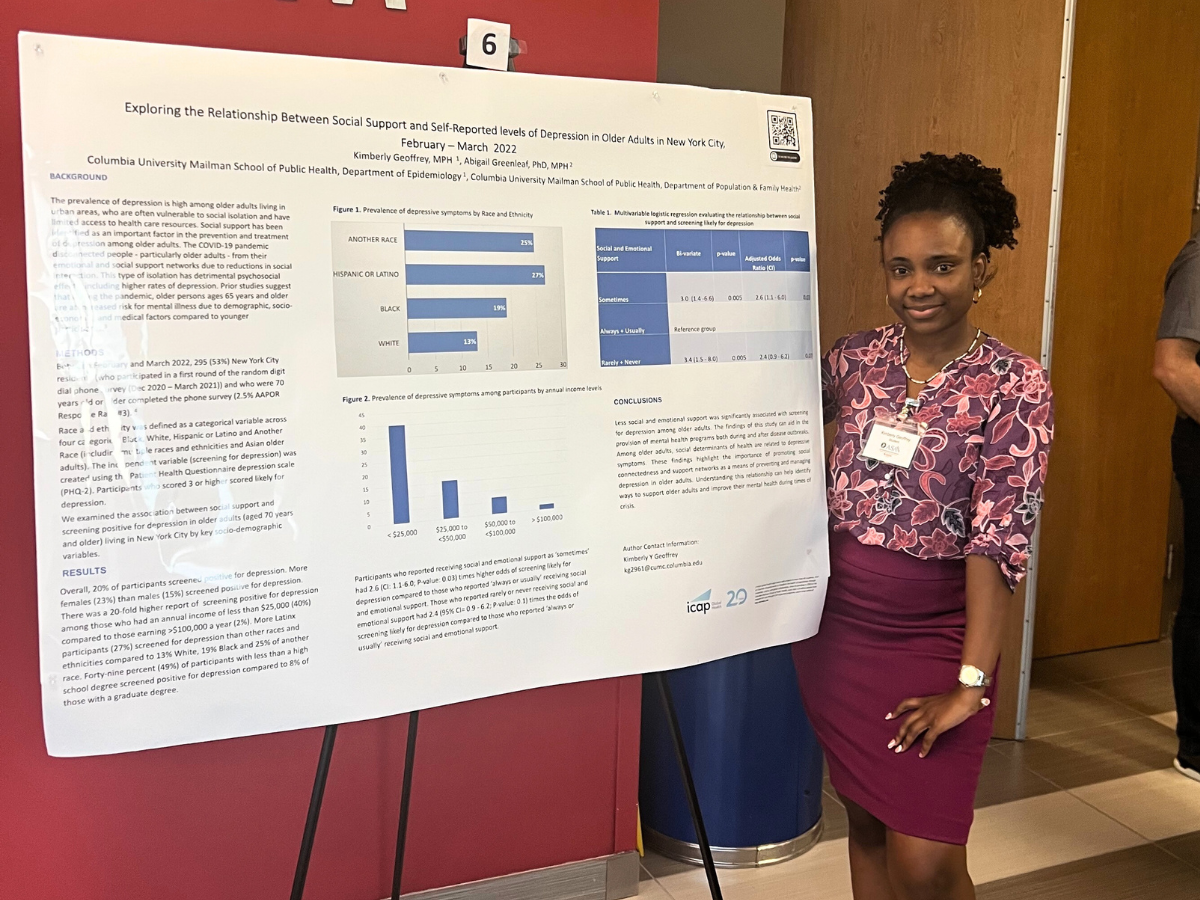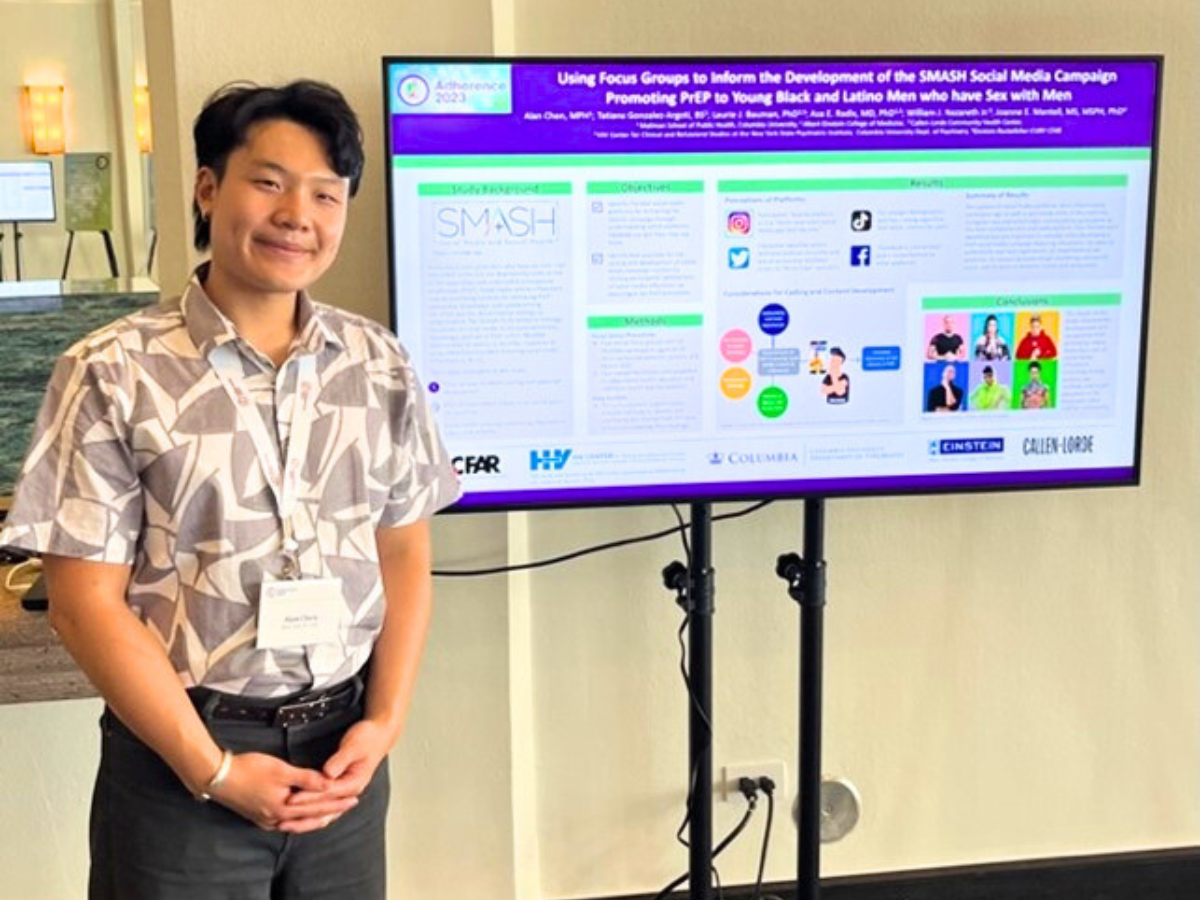Hay jefes y hay líderes. In Spanish, this translates to “there are bosses and there are leaders.” On the first day of my internship at the Center for Decision Support (Centro de Soporte a las Decisiones, or CSD) in Santo Domingo, the capital of the Dominican Republic (DR), I was welcomed with these words by Miguel Tejada, the coordinator of CSD. They set the tone for what would be a transformative summer experience.
I am Rosalía Minyety, a senior in Columbia’s Engineering department at the Fu Foundational School for Engineering and Applied Sciences, where I study biomedical engineering. During the summer of 2023, I participated in an ICAP Summer OvearSEAS internship, as part of the Next Generation Program, where I worked as a health data analyst at the Federal Bank of the DR. Through this opportunity, I analyzed the country’s health datasets, ranging from the prevalence of high-cost diseases to the health consequences arising from traffic accidents. My job was to uncover valuable insights into the nation’s health trends by identifying and examining intricate data patterns.
My connection to the DR, where I was born and raised, profoundly influenced my desire to find a career in health care and pursue biomedical engineering. It also motivated me to join the ICAP Summer OverSEAS program, where I would get a glimpse behind-the-scenes of projects that aim to improve health care in lower-resourced nations. My ICAP internship exceeded my expectations.
First, the internship experience brought me closer to my home. Analyzing health patterns within my own country allowed me to see the progress in health care infrastructure since my youth, yet also recognize the significant challenges that still lie ahead in terms of health care access. I observed the type of services that were provided across the country as well as how global health crises, such as the COVID-19 pandemic, were and are still being managed. Interacting with country decision-makers, including individuals from the Federal Bank and the Vice Presidency of the country, enlightened me about the ongoing efforts to improve health care in the DR. One noteworthy effort involves the implementation of advanced systems that enable health care providers to seamlessly access patient information via their computer platforms, underscoring how I, as a biomedical engineer, could contribute to and influence these endeavors.
Secondly, this summer internship afforded me the opportunity to work in a fast-paced work environment with large datasets. For instance, I analyzed the ages at which individuals were diagnosed with hearing loss, fibromyalgia, and HPV in the country. Working on different projects simultaneously broadened my skills in critical thinking, data analysis, statistical method, programming languages, and translating data into reports and graphics, teaching me to adapt swiftly and efficiently to the demands of each task. This experience affirmed my desire to work in data analysis, where I can continue asking questions, uncovering patterns, and contributing to evidence-based research.
Lastly, the people I met during the ICAP internship program transformed from strangers to family in the blink of an eye. In both the Summer Over SEAS cohort and the welcoming members of CSD, I found companionship, laughter, and support. These connections made my internship experience richer and more meaningful, emphasizing the importance of the relationships we cultivate along our professional journeys.
In sharing my experience, I hope to inspire others entering the field of global public health to embrace opportunities and continually seek growth. These experiences shape us into better scientists, doctors, engineers, students, and individuals, teaching us the vital distinction between bosses and leaders.
Rosalía Minyety
BSc in Engineering, Fu Foundational School for Engineering and Applied Sciences
Next Generation Intern


